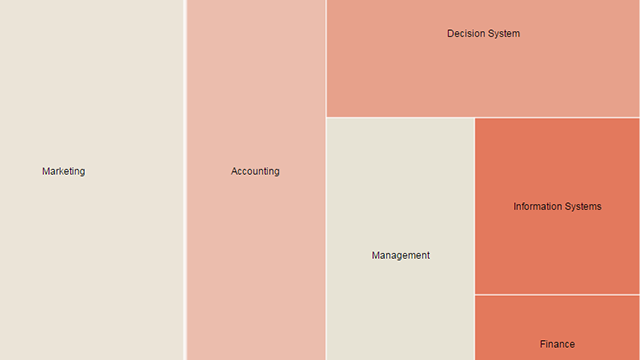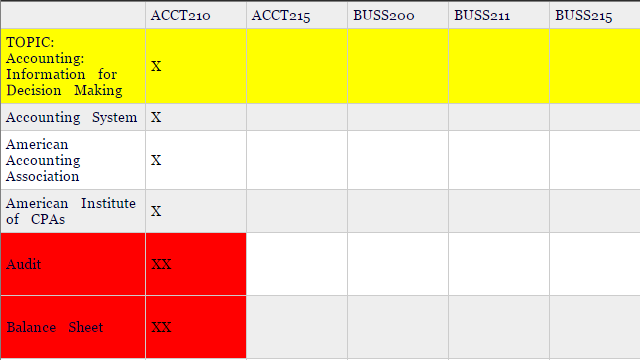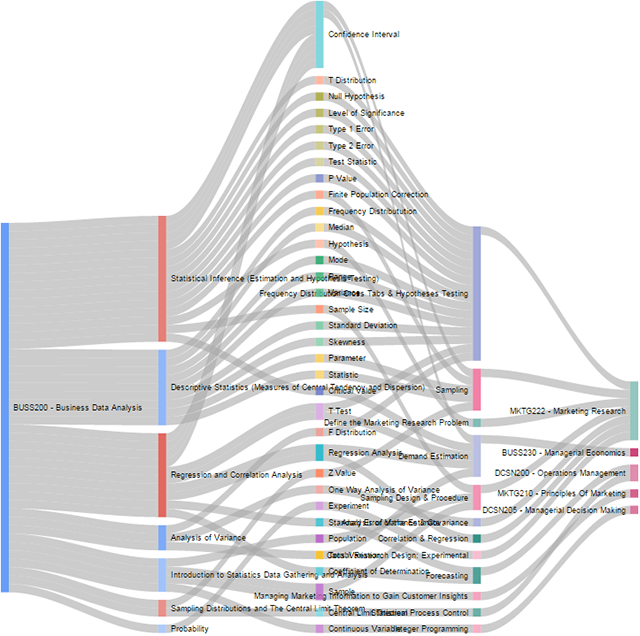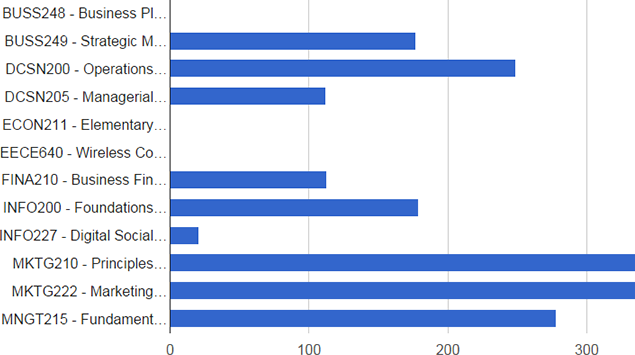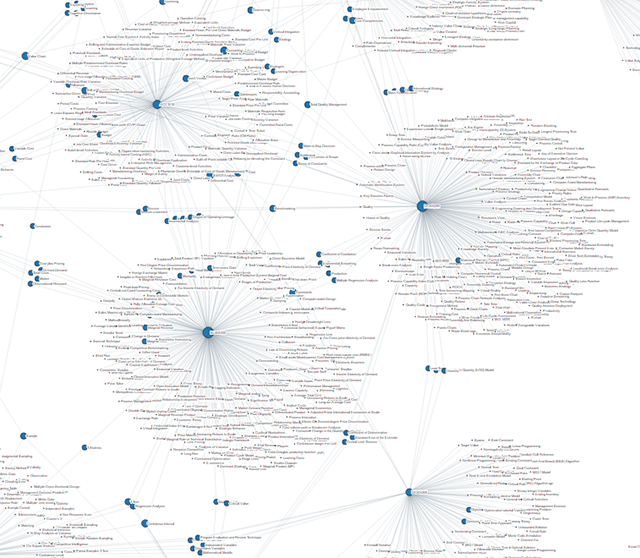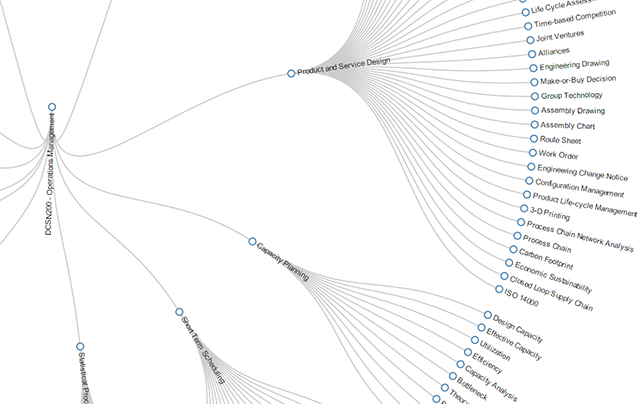Business Curriculum Analytics: Difference between revisions
No edit summary |
|||
| Line 1: | Line 1: | ||
We are in the process of building various tools and visualizations to support the Business Curriculum Analytics. The objective of the tools is to assess the impact of the Linked Data layer on the curriculum review process at the Olayan School of Business at AUB. The tools make use of the Linked Data generated out of this Wiki. This page will be regularly updated with more tools. | We are in the process of building various tools and visualizations to support the Business Curriculum Analytics. The objective of the tools is to assess the impact of the Linked Data layer on the curriculum review process at the Olayan School of Business at AUB. The tools make use of the Linked Data generated out of this Wiki. This page will be regularly updated with more tools. | ||
==Curriculum Tree Map== | ==Curriculum Tree Map== | ||
The curriculum Tree Map enables you to dig into the business curriculum starting from "Subjects", down to "Courses", to "Topical Coverage", with the ability to check the concepts covered inside each topic. The size of the parts are determined by the number of concepts covered in each area. Click on the TreeMap below to go to the live data. | The curriculum Tree Map enables you to dig into the business curriculum starting from "Subjects", down to "Courses", to "Topical Coverage", with the ability to check the concepts covered inside each topic. The size of the parts are determined by the number of concepts covered in each area. Click on the TreeMap below to go to the live data. | ||
Revision as of 09:26, 15 January 2019
We are in the process of building various tools and visualizations to support the Business Curriculum Analytics. The objective of the tools is to assess the impact of the Linked Data layer on the curriculum review process at the Olayan School of Business at AUB. The tools make use of the Linked Data generated out of this Wiki. This page will be regularly updated with more tools.
Curriculum Tree Map
The curriculum Tree Map enables you to dig into the business curriculum starting from "Subjects", down to "Courses", to "Topical Coverage", with the ability to check the concepts covered inside each topic. The size of the parts are determined by the number of concepts covered in each area. Click on the TreeMap below to go to the live data.
Concepts Mapping Table
The below table highlights how concepts are covered in courses. The "X" denotes the occurrence of the concept in the course. When more than one "X" exist, the user can check where the concept is mentioned by placing the mouse pointer on the table cell. There is also a feature to click on the concept to check the original wiki page. Click on the table to go to the live data visualization.
Table Highlighting the Concepts Covered in Courses and Topics
Course Concepts Flow using Sankey Diagram
The below visualization shows how concepts flow among courses. The selected course appears on the left, versus the other courses in the curriculum that share concepts with the selected course. In the middle the list of common concepts is shown, with their corresponding topics on their left and right. Click on the visualization to see the live visualization.
Sankey Visualization Showing how Courses Overlap in their Concepts Covered
Concepts Bar Chart
The concepts Bar Chart is a visualization that highlights the number of concepts in each course. Click on the graph to go to the live chart.
Forced Node Visualization of the Concepts in the Curriculum
This visualization shows a high level view of all the courses covered in the curriculum. Courses and concepts are presented as nodes, connected through links. This visualization provides the feature to focus on a selection of the nodes by clicking on the corresponding node. When a node is clicked, only the related nodes are shown. Click on the visualization below to go to the live diagram.
Tilford Tree Visualization of Concepts around Courses
This visualization shows the list of concepts covered in topics around a course. Nodes can be clicked and dragged around, and zoomed in/out. This visualization follows the Tilford Tree diagram. Click on the visualization below to go to the live diagram.
